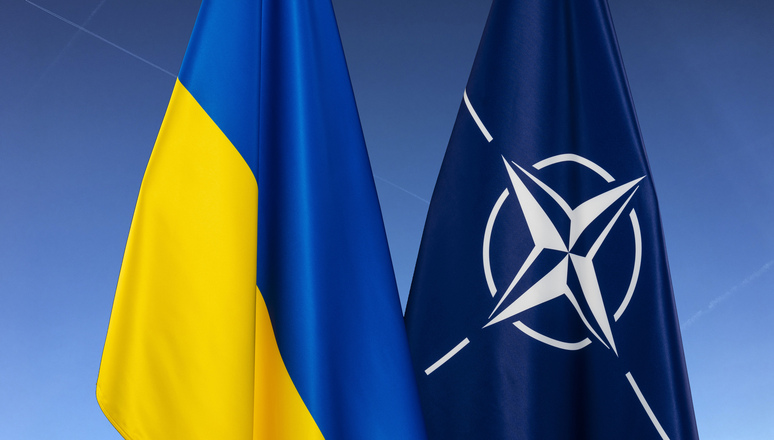Amid escalating tensions between Russia and Ukraine, NATO’s Secretary-General, Jens Stoltenberg, firmly denied any plans for sending combat troops to Ukraine. This denial follows French President Emmanuel Macron’s remarks suggesting the possibility of Western states deploying ground troops. The Kremlin swiftly responded, warning of an inevitable conflict if such a deployment were to occur.
NATO’s Rebuttal and Stoltenberg’s Assurance:
Stoltenberg addressed Macron’s statements, emphasizing that there were “no plans for NATO combat troops on the ground in Ukraine.” Despite Macron’s assertion that nothing can be ruled out, Stoltenberg clarified that the alliance remains committed to supporting Ukraine but through non-lethal aid and support.
European Heavyweights Firm on Non-Involvement:
Germany and Poland, two European military heavyweights, asserted their stance against sending troops to Ukraine. Their declarations align with the broader sentiment within NATO, with the head of the alliance confirming no plans for troop deployment. The Kremlin, through spokesperson Dmitry Peskov, reiterated that such a move would inevitably lead to a direct conflict with Russia.
Divergent Views Among European Leaders:
While Macron’s statements in Paris aimed to position himself as a champion of Ukraine’s cause, other European leaders, including German Chancellor Olaf Scholz, downplayed the likelihood of ground troops being deployed. Scholz stated that there was consensus among participants that no soldiers from European or NATO states would be sent to Ukraine.
NATO’s Ongoing Support for Ukraine:
Despite ruling out the deployment of combat troops, Stoltenberg underscored NATO’s unwavering support for Ukraine in the face of Russia’s aggression. The alliance continues to provide non-lethal aid, and individual members have been sending weapons and ammunition bilaterally. Stoltenberg emphasized Ukraine’s right to self-defense under international law, asserting NATO’s commitment to assist in upholding that right.
Concerns and Strategic Ambiguity:
The idea of sending troops to Ukraine has been met with caution within NATO, as the alliance seeks to avoid being drawn into a broader conflict with nuclear-armed Russia. While individual members can make bilateral agreements to provide troops, NATO’s involvement requires unanimous agreement from all 31 members.
Diplomatic Efforts and Bilateral Agreements:
The recent conference in Paris saw France, Germany, and the U.K. signing 10-year bilateral security agreements with Ukraine. Concerns about potential reductions in U.S. support for Ukraine, coupled with uncertainties about future U.S. policy, have prompted European nations to explore alternative means of supporting Ukraine militarily.
NATO’s Forward Planning:
Looking ahead, NATO is set to hold an informal meeting of foreign ministers in Prague in May 2024. The meeting will serve as a platform for discussions on strengthening and adapting the alliance, with a particular focus on NATO’s 25th anniversary since Czechia joined in 1999.
Trendirweetz Conclsive
As geopolitical tensions continue to mount, NATO’s unequivocal denial of plans to deploy combat troops to Ukraine reflects a delicate balance between supporting the embattled nation and avoiding a direct conflict with Russia. The alliance remains committed to providing assistance through non-lethal means while navigating the complexities of European leaders’ varying perspectives on potential troop deployments. The coming months will likely witness ongoing diplomatic efforts and strategic considerations within NATO as the situation unfolds.
FAQs On Nato News
Q: Is NATO planning to send troops to Ukraine?
A: No, according to NATO Secretary-General Jens Stoltenberg. He categorically denied any plans for NATO combat troops on the ground in Ukraine, responding to French President Emmanuel Macron’s remarks suggesting that “nothing can be ruled out.”
Q: How did Russia react to Macron’s comments and NATO’s denial?
A: Russia swiftly seized upon Macron’s suggestion, with Kremlin spokesperson Dmitry Peskov warning that sending Western ground troops to Ukraine would make direct conflict with NATO inevitable. He deemed Macron’s statement a “very important new element.”
Q: What support is NATO providing to Ukraine amid the Russian invasion?
A: While ruling out military action, Stoltenberg emphasized that NATO continues to offer strong support to Ukraine. The alliance provides non-lethal aid and support, while individual NATO members, such as Germany and Poland, have been sending weapons and ammunition independently.
Q: Are European heavyweights like Germany and Poland sending troops to Ukraine?
A: Both Germany and Poland have affirmed that they will not be sending troops to Ukraine. This stance aligns with the broader consensus among central European leaders and NATO, as reiterated by Stoltenberg.
Q: What role did Macron play in the recent discussions, and what agreements were made in Paris?
A: Macron’s comments, made during a meeting of European leaders in Paris, stirred discussions about the possibility of Western ground troops in Ukraine. However, German Chancellor Olaf Scholz clarified that the participants agreed there would be no ground troops from European or NATO states. Macron’s aim was seemingly to position himself as a champion of Ukraine’s cause amid concerns about waning U.S. support.
Stay informed of the latest developments on the NATO-Ukraine situation as it unfolds.
Read More With Us >>https://trenditweetz.com/att-chaos/

1 thought on “Breaking Nato News On Russia and Ukraine War: 5 Key Questions Answered”